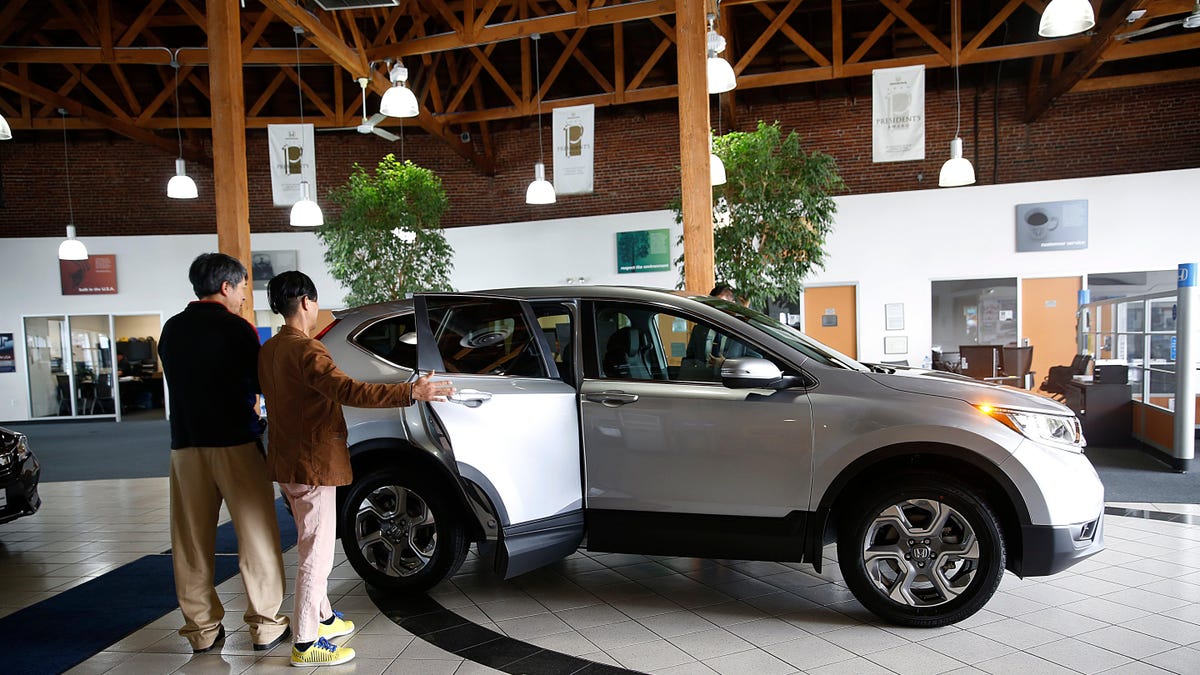
Shopping for a brand new car is thrilling. Most individuals assume that after they signal their identify on the dotted line — they’ll seize the keys and go away the seller with the whole lot squared away. For some new automotive consumers, it’s rather more difficult than that, as NPR highlighted in a current story on a seller observe generally known as “yo-yoing.”
Basically a seller yo-yo — the seller I used to be employed at known as it puppy-dogging for some purpose — is when the seller let’s you’re accredited, and permits you to signal, pay for, and go away with the automotive earlier than you’re actually accredited. You’ve crammed out the paperwork, utilized for financing, paid the downpayment, signed some paperwork after which are given the keys to go away in what you consider is your new journey.
However every week or so later, the seller calls you saying that you just, the truth is, haven’t been accredited. Relying on the seller, one in all two issues will occur: they’ll let you know to carry the automotive again and so they’ll both return your downpayment, or they’ll say you’ll want to comply with increased financing phrases. Any means you go concerning the scenario sucks — you’ll both be with out a automotive or paying considerably greater than you initially agreed to.
That is what occurred to Courtney and Darren Johnson in Florida. The couple had been new dad and mom and wished a household automotive, in order that they went and bought a Hyundai SUV from Greenway Hyundai Orlando. Three weeks after their buy, the Johnsons obtained a name from the seller’s finance supervisor. From NPR:
I obtained a telephone name from the finance supervisor of the dealership,” Darren Johnson says. The supervisor advised them the financing for the automotive had fallen by way of and if the couple wished to maintain it, they needed to come again and signal a contract with totally different phrases.
“I used to be form of confused,” Johnson says. “I believed this was a legally binding contract. … We’ve had this car at dwelling. What do you imply it’s not financed?”
Thinking something was afoot, the Johnsons ignored the dealer. But the dealer retaliated and sent a tow truck to repossess the SUV. The couple then tried to contact the dealer to get their vehicle back, but the dealership ignored their calls. In the NPR story, the Johnsons’ fate landed them with a year of no car, and asking friends for rides to work and appointments.
Different states have different notification timeframe requirements for dealers. In Maryland, a dealer has simply 4 days to inform a buyer in the event that they’re accredited or not; in Florida, I couldn’t pin down precisely how lengthy a seller has; in California, it’s simply over 2 weeks.
This additionally highlights the significance of studying contracts earlier than you signal them. Most of those gross sales contracts have language in them that claims that the seller can pull this type of stunt; that gross sales aren’t closing and that the seller can cancel the whole lot if financing can’t be secured. And it occurs extra usually than you assume. Attorneys from throughout the nation spoke to NPR, and of the 40 attorneys they spoke with, they mentioned that they’d obtained over 900 calls relating to this seller tactic. Usually, sellers usually find yourself screwing over clients, both with excessive mortgage phrases or mendacity to them about not with the ability to return buyer trade-ins.
So, why would a seller do that? Greed. Sellers don’t need you to go away with out shopping for one thing the day you set foot on their seller lot. Many will work a deal and shove the paperwork by way of finance to no matter firm will take it, and for them, on the seller’s finish, the whole lot is completed. They’ll get that fee whether or not financing for the client was accredited or not. Generally, it’s accomplished as a tactic to get more cash out of a buyer, therefore the upper financing charges in the event that they’re advised they must carry the car again.
However the authorities is watching. On the behest of 18 state lawyer generals, the Federal Commerce Fee is drafting up new guidelines to cease this observe. Underneath this proposed rule change, the FTC would prohibit “sellers from misrepresenting when the transaction is closing or binding on all events and from making misrepresentations about holding money down funds or trade-in autos, charging charges, or initiating authorized course of or any motion if a transaction will not be finalized or if the patron doesn’t want to interact in a transaction.”
Not everybody believes federal intervention is mandatory although, as a result of sellers keep on transactions like this all the time with no challenge. It’s truthfully their fame, and never the purchasers fame, happiness or well-being, that they should defend. From NPR:
However Paul Metrey with the Nationwide Car Sellers Affiliation says the FTC doesn’t want to alter the principles on the federal stage. He says the overwhelming majority of automotive gross sales undergo with no incident. “You will have tens of hundreds of thousands of transactions the place this occurs on a regular basis,” Metrey says, even when the gross sales contract offers the seller the suitable to cancel it later.
So he says there’s nothing fallacious with contracts that give sellers the suitable to cancel after the very fact. He says he doesn’t have knowledge on issues with yo-yo gross sales however that it appears to him that it’s uncommon that the unique phrases don’t work and a automotive purchaser must be known as again.
“That’s a scenario that you just wish to keep away from,” he says, as a result of if the client walks away, the seller will get caught with a automotive with extra mileage on it making it value much less. It’s a headache for everyone concerned.
“Maybe most importantly, you’ve an sad buyer,” Metrey says. “The fame of the dealership is vital.”
These sad clients stroll away shedding much more, a lot like the Johnsons did. The couple not solely had no car for a yr, however didn’t get their trade-in car again both. The failed financing didn’t cowl the trade-in’s mortgage both, in order that they had been additionally caught paying that off. They’d ultimately dip into their retirement financial savings to pay off that invoice. Ultimately, the Johnsons acquired a greater ending to their story. After discovering an lawyer to take their case, they sued Greenway Hyundai Orlando, and gained $225,000 in arbitration.



